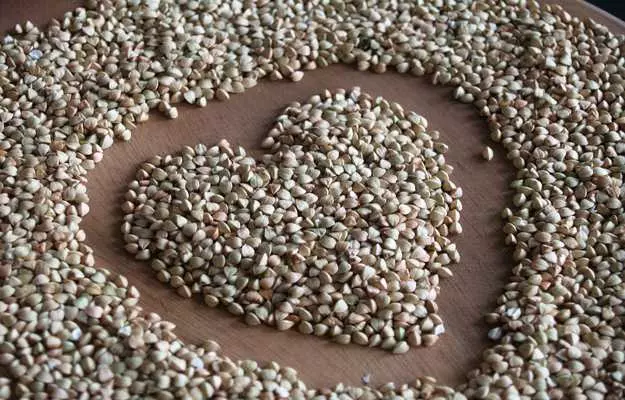Buckwheat is a common crop, which is widely grown and used in India, especially during the season of fasting or navratras. During this season, buckwheat flour, commonly known as kuttu ka atta, is used to cook a wide range of delicacies including rotis, puris, pakoras and even tikkis. If you love the taste of these dishes, you must surely be curious to know about the health benefits of this flour. And certainly, you are not going to be disappointed.
Evidence has it that buckwheat has anti-diabetic and even some anti-cancer properties, suggesting that it may be a healthy addition to your diet even when you are not fasting. Most of these benefits can be attributed to its rich nutritional composition, which makes it a potent antioxidant and anti-inflammatory food. To know more about these benefits, read this article, which will also introduce you to an easy and healthy buckwheat recipe.
Let’s start with knowing more about this grain.
Some basic facts about buckwheat or kuttu
Kuttu flour, which you use, is derived from buckwheat, a short, seasonal crop that commonly grows during colder climatic conditions. Buckwheat has several varieties and types and cannot grow in extremes of climate. After sowing buckwheat, the grain matures within 10 to 12 weeks, so, this crop can be easily grown and utilised, which favours its availability. If you know some basics of crops, you can easily grow buckwheat at home since it is quite an easy and inexpensive crop. Here is some more on this crop:
- Scientific name: Fagopyrum esculentum
- Family: Polygonaceae
- Common name: Kuttu, kuttu ka atta
- Native region and Geographical distribution: Buckwheat is native to South East Asia, where it was first cultivated. Since then its use has spread around the world. It is now grown as a common crop in the Indian subcontinent and even in the United States.
- Parts used: Grains
- Types: Buckwheat has a variety of appearance and is of several types like red buckwheat, unhulled buckwheat, green buckwheat, black buckwheat, naked buckwheat groats, roasted buckwheat groats, buckwheat hulls. Green or black roasted buckwheat is used for making buckwheat flour. This gives a difference to the texture and colour of the flour. Usually, black buckwheat is used for making the kuttu ka atta.
























